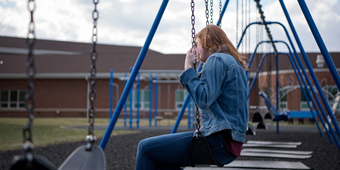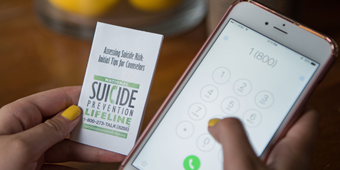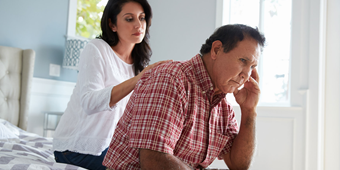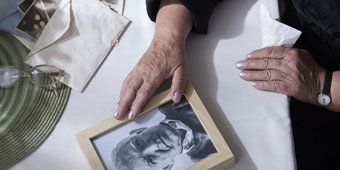Depression
Feelings of sadness come and go. When they persist, as depression, they interfere with your life. Learn how to recognize it and seek treatment.

Take heart! Small steps can lead to big improvements.

Take steps to help the teens you love.

Another option when medications and therapy aren’t working.
.tmb-card-head.webp?sfvrsn=20372fc9_9)
Openly communicate, accept your grief as normal and seek support when you need it.

Noticing mood changes in yourself or an older loved one? It may not be “just” aging.

Get the right help to get your life back.

How introverts can thrive in an extroverted world.

The type of depression can matter for effective treatment.

Your genetics increase risk but don’t cause depression.

When the world is red and green but you’re feeling blue, try these tips to get you through.

Ask questions and communicate openly with your doctor.

Know who to turn to when you need help with depression.

You don’t need to feel alone. Many people want to help.

Know your triggers and warning signs.

Break free from depression, even if you’re dealing with chronic illness.

Tips for helping yourself, your loved one and your relationship

The key to all 10: Be present and encouraging

Smart lifestyle choices can help medications work better.

Sleep disruptions can affect your mood.

Overcome the barriers to getting care when you need it.

Are you dying to be thin?

Feeling blue? Curling up with a carton of ice cream is about the worst thing you can do.
.tmb-card-head.webp?sfvrsn=680c0961_9)
Know the triggers, the signs and how to get help.

We shine some light on the best ways to beat Seasonal Affective Disorder.

Depression takes a toll on mind and body, so know how to ease the physical impact.

Understand contributing factors, signs and what to do for a depressed teen.

Although connected, each of these states has its own sources and solutions.

Suspect suicidal thoughts? Don’t look away.

Find out if what you’re experiencing is more than just “baby blues.”















